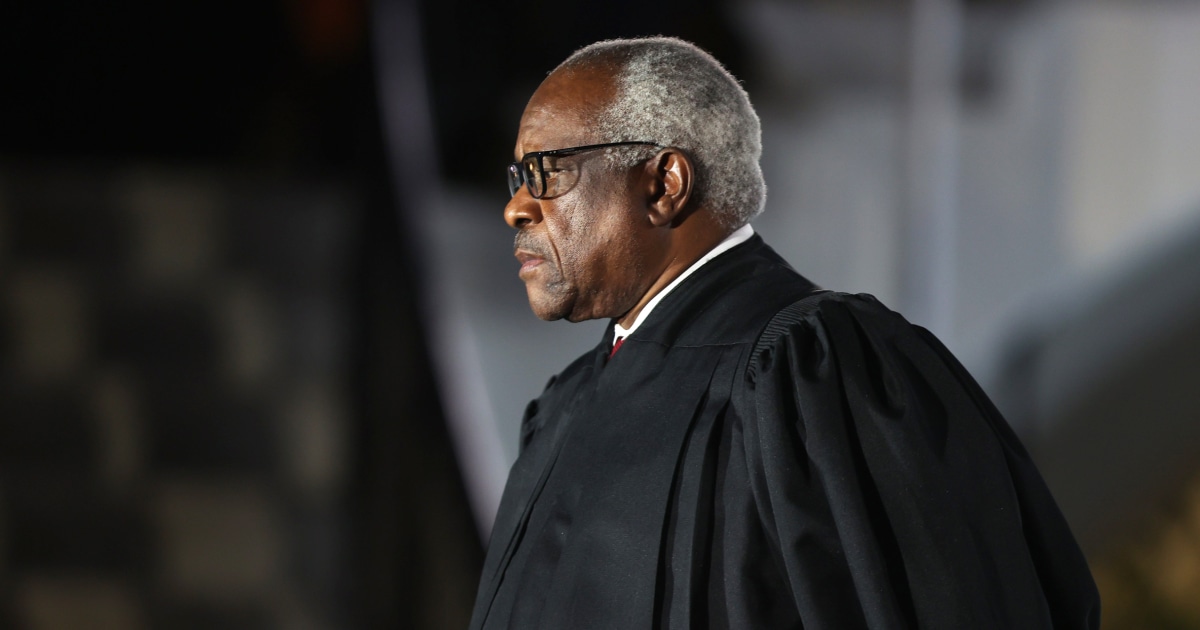 [ad_1]
[ad_1]
The conservative-majority Supreme Court docket just isn't a fan of loss of life row prisoners or DNA testing. So it’s value noting a current resolution that lets a person who was sentenced to loss of life pursue such testing as he seeks to show his innocence. But, this frequent sense final result nonetheless cut up the courtroom 6-3, with one of many dissenters, Clarence Thomas, taking solace in what he noticed as the intense aspect: The person searching for DNA testing can nonetheless be executed.
Innocence wasn’t the difficulty on the Supreme Court docket in Rodney Reed’s case, which has been championed by celebrities like Kim Kardashian. Relatively, the justices had been checking out a drier however essential query over the statute of limitations: When did the authorized clock begin working for Reed’s declare?
Texas state trial and appellate courts denied Reed’s bid for testing sure proof, akin to a belt utilized in 1996 to strangle Stacey Stites, the white girl who Reed, a Black man, was convicted of killing.
Thomas' hardest-right colleagues did not be part of his 20-page effort, which doubled as a prosecution memo towards Reed.
Reed pressed a due course of declare in federal courtroom, difficult state procedures that denied him testing. However the fifth Circuit Court docket of Appeals (the identical right-wing courtroom that’s contemplating the pending abortion capsule litigation) mentioned Reed was too late, as a result of, it mentioned, the clock began working when the state trial courtroom dominated towards him. Reed argued that the ruling would not make sense, as a result of he was difficult state legislation, which is interpreted by the state appeals courtroom, so the clock shouldn’t run till the state attraction is resolved.
The Supreme Court docket agreed. Writing for almost all, Justice Brett Kavanaugh noticed that, if the clock began working with a state trial courtroom denial, that will lead folks to convey federal claims whereas interesting on the state stage.
“We see no good purpose for such mindless duplication,” Kavanaugh wrote on April 19 for the bipartisan majority, which included his fellow Republican appointees, Chief Justice John Roberts and Justice Amy Coney Barrett, plus the three Democratic-appointed justices — Sonia Sotomayor, Elena Kagan and Ketanji Brown Jackson. It took solely six pages to put out this simple final result.
The majority of the judicial writing in Reed v. Goertz (Bryan Goertz is the district legal professional in Texas who refused to permit the DNA testing) consists of dissent. The three dissenters had been unsurprising: conservative Justices Samuel Alito and Neil Gorsuch, plus Thomas. However they dissented individually, with Alito’s dissent, joined by Gorsuch's, being comparatively restrained in its disagreement with the bulk about when precisely the clock begins to run.
However Thomas' hardest-right colleagues did not be part of his 20-page effort, which doubled as a prosecution memo towards Reed whereas arguing that the person couldn’t even convey a federal declare. The justice, who’s been below scrutiny for undisclosed monetary ties to a Republican billionaire, ended his solo dissent by successfully calling for Reed’s execution earlier than his DNA declare is resolved.
“If there's a mitigating issue to right now’s resolution,” Thomas wrote, it’s that letting the declare proceed “isn't any barrier to the immediate execution of Reed’s lawful sentence.” The justice went on to cite Reed’s lawyer on the oral argument final 12 months, noting that the lawyer mentioned, “You don't get a keep of execution simply” for bringing a declare like Reed’s. Thomas mentioned the state, due to this fact, “is free to take him at his phrase” — that's, to execute him.
In fact, Reed’s lawyer wasn’t advocating for his shopper’s loss of life. He was making an attempt to go off the kind of concern raised by Republican justices like Thomas that loss of life row prisoners elevate tenuous authorized arguments to delay the inevitable. The truth is, had Thomas quoted the lawyer’s very subsequent phrases from the argument, readers of his dissent would study that Reed’s execution was already stayed by the state courtroom, in different litigation that’s ongoing. Listed here are these subsequent phrases from Reed’s lawyer, Parker Rider-Longmaid, who referred to a possible alternate suspect, white police officer Jimmy Fennell, to whom Stites was engaged:
Mr. Reed has a keep of execution from the Texas courts ... the place he raised proof that Fennell admitted to killing Stites as a result of he found she was sleeping with a black man, that Fennell threatened to kill Stites if he caught her dishonest, that Fennell made inculpatory statements at Stites’ funeral and that Fennell and Stites’ relationship was fraught .... So I believe, if you take a look at the truth that nobody’s going to have the ability to get a keep of execution with out some exhibiting, there’s actually not a priority of delay in instances like these.
That's, ruling for Reed on this statute of limitations challenge isn’t, by itself, going to robotically cease him or others elevating related claims from being executed. However the proof of potential innocence that the lawyer cited makes Thomas’ already gratuitous name for Reed’s execution much more maniacal.
